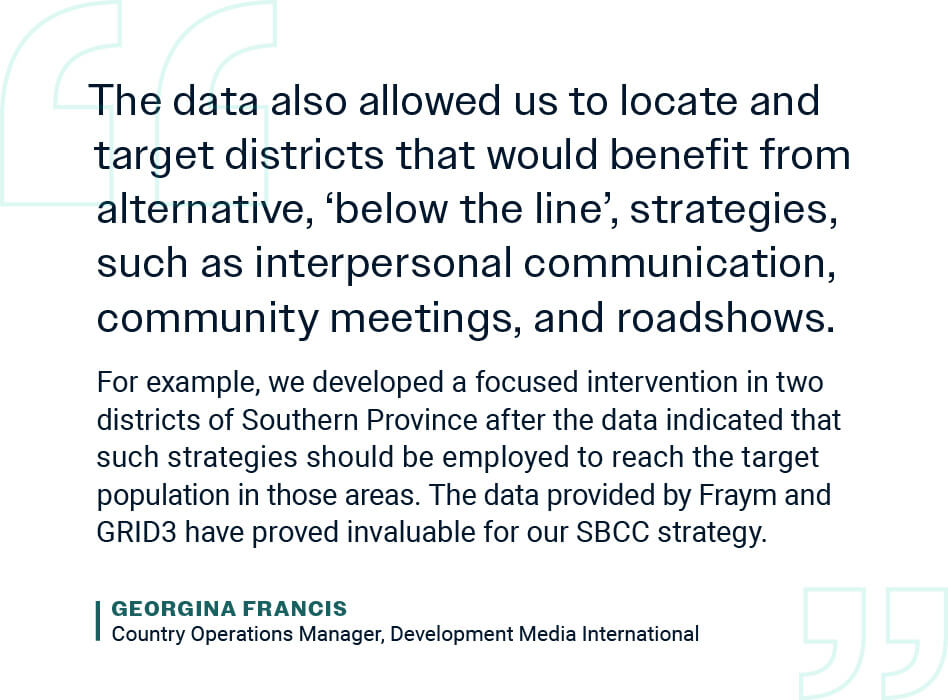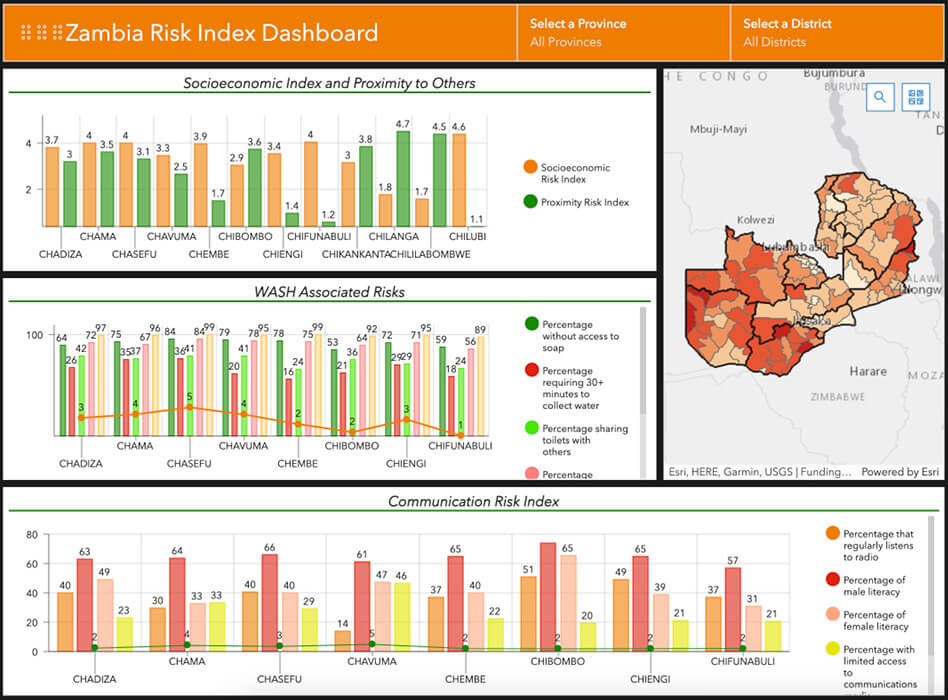Fraym Joins With Unlock Aid to Remove Barriers for International Development

To aid the Government of Zambia in its efforts to improve access to and demand for sexual and reproductive health services, Development Media International (DMI) refined a Social and Behaviour Change Communication strategy using data produced by GRID3 in collaboration with Fraym.
In Zambia, contraceptive use has been low. A report published by Family Planning 2020 reveals that in 2019 roughly 35% of all women were using contraceptives. This strategy analyzes the current need for contraceptives at the district level alongside access to radio broadcasts to identify areas where a radio campaign will have the greatest impact.
Using risk data provided by GRID3 in collaboration with Fraym, DMI was able to refine a Social and Behavior Change Communication (SBCC) strategy which included running radio campaigns for specific districts with the aim of addressing barriers to the uptake of contraceptives, such as misconceptions about their safety, low support from men, and stigmatization of young people accessing contraceptives. Ultimately the aim of the campaigns was to change behaviors, tackle norms, and increase contraceptive use in the country.


To inform the strategy, the team analyzed information on the number of people who regularly listen to the radio and risk data on communication and socioeconomic vulnerability.
Through the campaign DMI is reaching 8 million listeners every month.
%
Women use contraceptives
Districts identified for focused interventions
M
Campaign listeners every month

“The vulnerability risk data in an accessible, user-friendly format allowed us to easily identify districts with a high unmet need for contraceptives in which radio campaigns would have the greatest potential to change behaviours. We used this information to inform our radio station selection and broadcast strategy. In December 2020, we reached eight million listeners with the campaigns.”